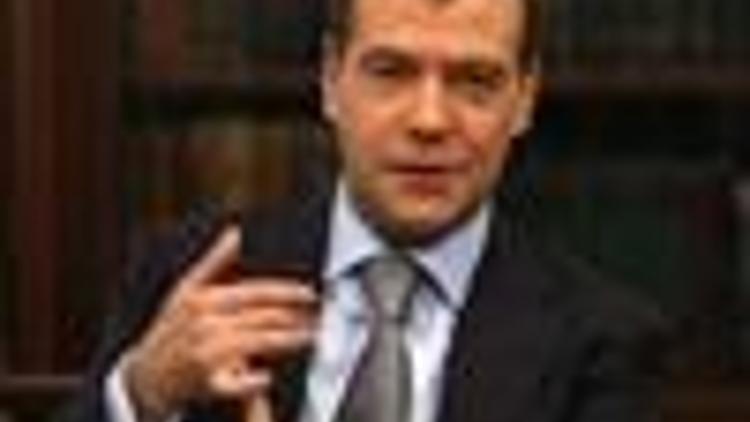Russia says troops to leave Georgia by weekend
Güncelleme Tarihi:

Russian President Dmitry Medvedev promised to pull almost all troops from Georgia by the weekend, but there was no immediate sign of movement Wednesday.
As international pressure mounted on
In a telephone conversation with French counterpart Nicolas Sarkozy, Medvedev vowed that all but 500 Russian troops needed for "additional security measures" would be pulled out of the former Soviet republic by Friday.
However, there was no evidence early Wednesday of a shift in the Russian deployment, which began Aug. 8 to repel a Georgian offensive against separatists in
Over five days
An AFP correspondent approaching the mountain pass across the Georgian-Russian border saw no military traffic heading out of
Troops remained dug in near Gori, a Georgian town outside
Georgian interior ministry spokesman Shota Utiashvili told AFP "there are no major movements or sign of a withdrawal."
Delays in
Visiting
At the United Nations in
Tensions also boiled over between
Russian Foreign Minister Sergei Lavrov lashed out at what he called attempts to rescue the "criminal regime" of Georgian President Mikheil Saakashvili, a close Western ally pushing hard to win NATO membership.
He called NATO’s position on the crisis "unobjective and biased" and said moves to draw
A French-brokered deal specifies that combat troops must pull out but an unspecified number of Russian soldiers can remain as "peacekeepers". There is little clarity on their mandate or their scope of operations.
The other major question remains whether
The Ossetians say they want to become part of
Tens of thousands of ethnic-Georgians, who used to form the majority population in Abkhazia, have been expelled from their homes over the last 15 years and remain displaced inside
The draft U.N. text, debated during an emergency council meeting, "demands full and immediate compliance with the ceasefire to which the parties have subscribed".
Circulated by
It would also reaffirm "the commitment of all member states to the sovereignty, independence and territorial integrity of
But
Photo: AFP

